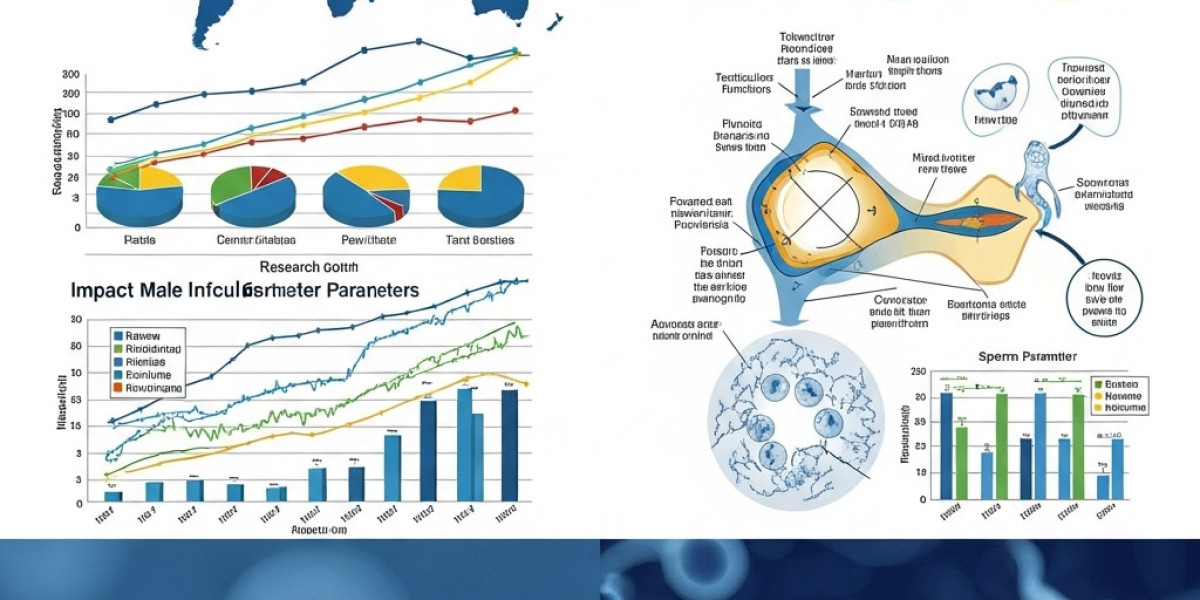The COVID-19 pandemic has brought unprecedented challenges to global health. While much focus has been on respiratory symptoms and vaccination drives, a less discussed but significant concern is the impact of COVID-19 on male fertility. Men worldwide are wondering how the virus might affect their reproductive health and whether there are lasting effects on fertility.
In this blog, we explore the global impact of COVID-19 on male fertility, scientific findings, and how to seek expert care. If you are concerned about your reproductive health, consulting the Best Male infertility Centre in Delhi can provide you with expert guidance and treatment.
The Connection Between COVID-19 and Male Fertility
The novel coronavirus (SARS-CoV-2) primarily affects the respiratory system. However, recent studies have shown that the virus may have implications beyond the lungs, including on the male reproductive system.
The testes, which produce sperm and testosterone, express ACE2 receptors — the same receptors the virus uses to enter human cells. This suggests the virus could potentially infect testicular cells, leading to inflammation or damage that might impact sperm production and quality.
Scientific Findings on COVID-19 and Male Fertility
1. Impact on Sperm Quality
Several studies conducted globally during the pandemic found that COVID-19 infection could reduce sperm count, motility, and morphology. Men recovering from moderate to severe COVID-19 sometimes showed decreased semen quality for weeks or months after infection.
2. Inflammation and Oxidative Stress
COVID-19 can cause systemic inflammation, which may lead to oxidative stress in the testes. This stress damages sperm DNA and affects sperm function, resulting in temporary or long-term fertility issues.
3. Hormonal Changes
The virus can alter the levels of hormones vital for male fertility, such as testosterone and luteinizing hormone (LH). Lower testosterone levels have been observed in some COVID-19 patients, which could affect libido and sperm production.
Long-Term Effects: What Does the Future Hold?
While some men experience temporary declines in fertility after COVID-19, ongoing research is investigating the potential for long-term impacts. It is important to note that many men recover fully, with sperm parameters returning to normal over time.
Still, men experiencing infertility or reproductive concerns after COVID-19 should not delay seeking specialist advice. Early evaluation can help detect problems and begin appropriate treatment.
Importance of Expert Care: Best Male Infertility Centre in Delhi
If you are facing fertility issues post-COVID-19 or otherwise, it is crucial to consult with experts who understand the complexities of male infertility. The Best Male infertility Doctor in Delhi, Dr. Poonam Goyal, provides advanced diagnostic and treatment options tailored to your individual needs.
At the Best Male infertility Centre in Delhi, under Dr. Poonam Goyal’s expert guidance, patients receive comprehensive care including:
- Detailed fertility assessments (semen analysis, hormonal profiling)
- Advanced imaging and diagnostic tests
- Personalized treatment plans including medical, surgical, and assisted reproductive techniques
- Counseling and lifestyle advice for improved fertility outcomes
Why Choose Dr. Poonam Goyal?
Dr. Poonam Goyal is renowned as the Best Male infertility Doctor in Delhi, combining years of experience with cutting-edge technology. Her approach is patient-centered, focusing on empathetic care and scientifically proven treatments. Patients benefit from her holistic perspective that considers all factors affecting fertility, including the potential aftereffects of COVID-19.
The clinic’s state-of-the-art facilities at the Best Male infertility Centre in Delhi ensure the highest standards of care and comfort.
How to Protect Male Fertility During and After COVID-19
While researchers continue to uncover the long-term impact of COVID-19 on fertility, men can take proactive steps to protect their reproductive health:
- Get vaccinated against COVID-19 to reduce the risk of severe infection.
- Maintain a healthy lifestyle with balanced nutrition and regular exercise.
- Avoid smoking and excessive alcohol consumption.
- Manage stress through mindfulness, therapy, or support groups.
- Seek early medical consultation if you notice fertility issues or other symptoms post-infection.
Consulting the Best Male infertility Doctor in Delhi, such as Dr. Poonam Goyal, can provide reassurance and expert intervention when necessary.
Conclusion
The COVID-19 pandemic has reshaped many aspects of our lives, including concerns about male reproductive health. Scientific studies suggest that COVID-19 can impact male fertility through inflammation, hormonal changes, and direct viral effects on the testes. While many men recover fully, those experiencing fertility difficulties should seek expert advice.
If you are in Delhi or nearby, the Best Male infertility Centre in Delhi led by Dr. Poonam Goyal is your trusted destination for comprehensive male fertility care. With personalized treatment plans, advanced diagnostics, and compassionate support, you can regain control over your reproductive health.
Don’t wait — book a consultation today with the Best Male infertility Doctor in Delhi and take the first step toward your fertility journey







